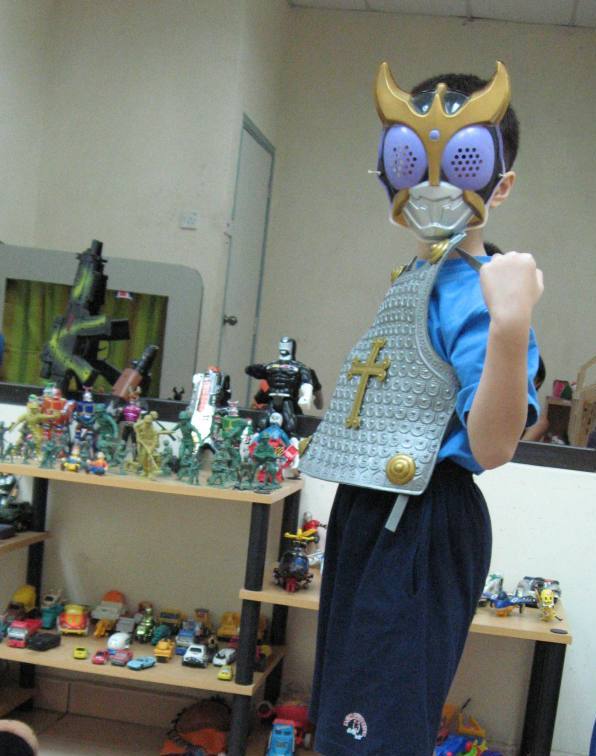Play Therapy
What Is Play Therapy?
According to the founder of Child-centred Play Therapy, Axline (1947), children play out their inner emotions through play therapy, like how adults express their inner struggles through verbal therapy.
Dr. Garry L. Landreth, founder of The Centre for Play Therapy in the University of North Texas, asserts that "Play Therapy is a dynamic interpersonal relationship between a child and a therapist trained in play therapy procedures. The therapist provides specially selected play materials and facilitates the development of a safe relationship for the child to fully explore his/herself (feelings, thoughts, experiences and behaviors) through the child’s natural medium of communication: play.”
Target Group![]()
Age 2-12
Application Of Play Therapy
Play therapy can be applied to child- care centers, kindergartens, elementary schools, mentally retarded children’s homes, community centers, children’s wards and special education centers.
The Purpose of Play
According to Dr. Garry L. Landreth, Play Therapy is aimed at helping children to:
- Develop a healthy self-concept
- Promote self-acceptance
- Enhance self-confidence
- Experience a feeling of control
- Become more self-directing
- Become more self-reliant
- Develop an internal source of evaluation
- Assume greater self-responsibility and sensitivity
The Importance of Play
- Reduce stress from learning and schooling
- Encourage children’s curiosity and discovery instincts in a concentrated and socialized learning process
- Provide children with opportunities to develop new skills in their intellectual, social, emotional & physical capacities
- Allow children to comprehend and understand an adult’s world for themselves
- Help children to understand another peer’s point of view, to learn how to cooperate and to help each other by sharing and solving problems
- Create a fun learning environment, which promotes creativity in coping with life
Result of Play
According to research done since 1937, Play Therapy can result in:
- Reduction of negative emotions in children with divorced parents
- Decreased aggressive behaviors
- Improved emotional adjustment of abused & neglected children
- Relief of psychosomatic difficulties such as asthma, ulcerative colitus and allergies
- Better social and emotional adjustment
- Correction of speech problems
- Improved self-concept
- Reduction of separation anxiety
- Reduction of stress and anxiety in hospitalized children
- Decreased emotional and intellectual problems of mentally retarded children
- Increased academic performance in learning disabled children
Research and studies over the past 100 years have demonstrated the effectiveness of play therapy with children of all diagnostic categories except the severely autistic and out-of-contact schizophrenic children.








